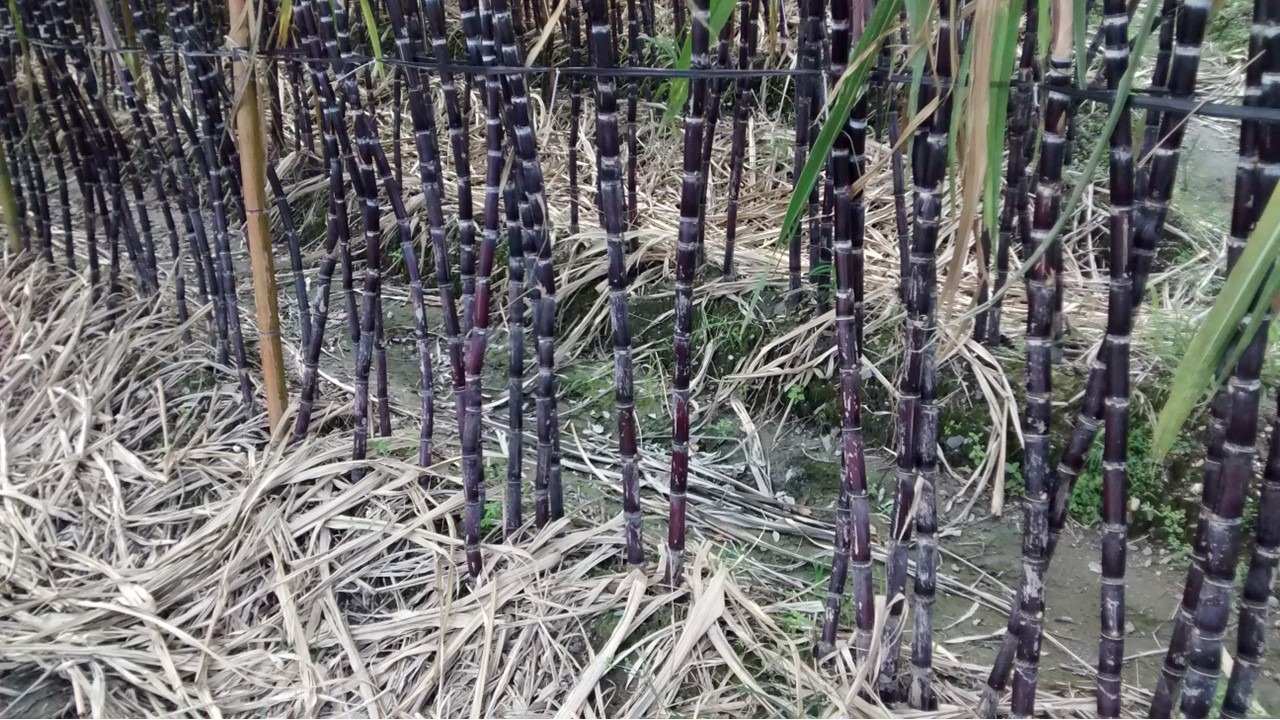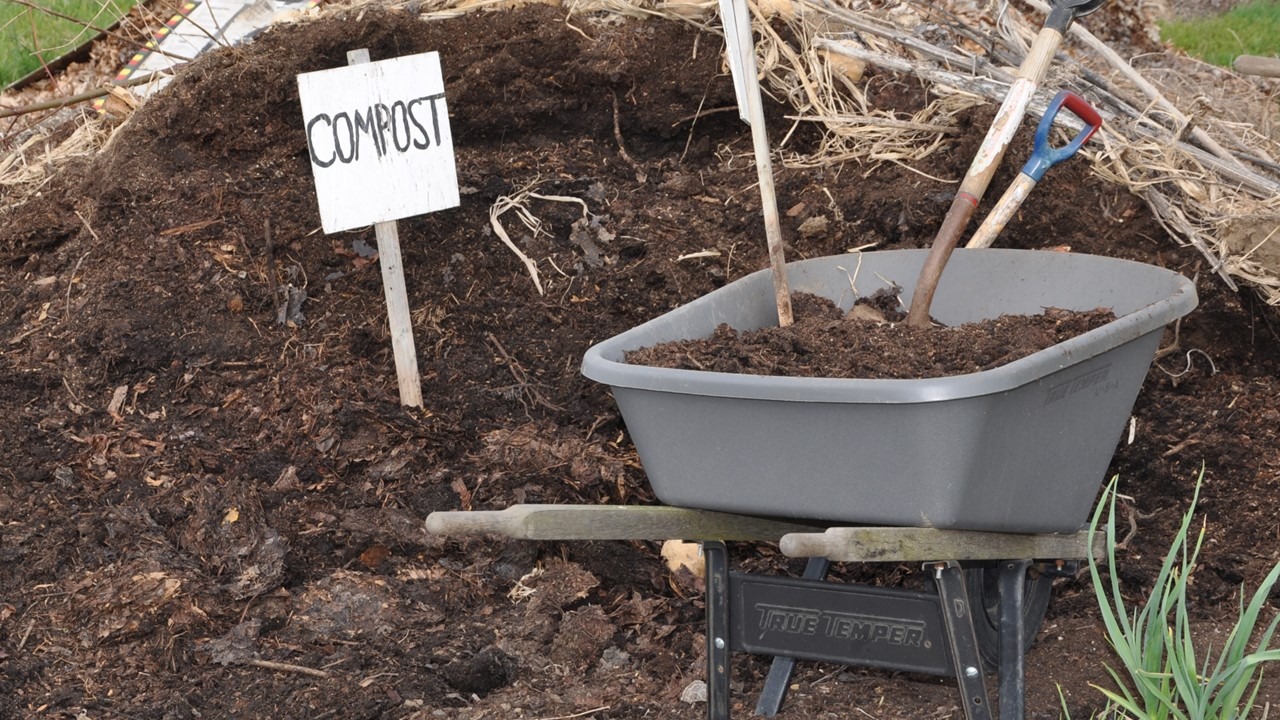Nearly half of the waste generated by people is organic waste. Most of the organic waste can be composted and returned to the soil. If it ends up in landfills or incinerators, additional pollution will be generated and resources will be wasted. That is why sending as many compostable products to the composting system as possible will foster a circular economy of biomass. If the municipal system in the area where one resides does not have a composting mechanism, one can compost at home to contribute to the Earth’s welfare. However, some organic substances are not suitable for composting which can easily cause confusion. This article will introduce compostable items and explain the differences between seemingly similar terms such as industrial composting, commercial composting, compostable, and biodegradable. Moreover, the article will provide a list of compostable and non-compostable items for those who wish to compost at home.
What is compostable?
Compostable is an adjective for describing substances that can be broken down into CO2, water, and humus by microorganisms in a specific environment. The process is called composting, referring to a man-made action where people can control the composition, humidity, and temperature of the compost pile. Meanwhile, the compostability certification of biodegradable products such as eco-friendly straws and tableware is stipulated to ensure that these biodegradable products can be fully broken down in an artificially controlled composting environment within a certain time.
Industrial/commercial composting versus home composting
The two most common composting techniques are industrial composting and home composting. The former is the more efficient composting method, boasting a larger scale and rigorous control of the compost pile’s composition, temperature, humidity, and air contact, accelerating the decomposition of more types of organic waste. Organic waste is gathered by the municipal system for centralized composting, while home composting is more flexible and accessible to the public, allowing individual households to mainly compost domestic organic waste at home. The compost created can be used for gardening.
Compostable versus biodegradable

Biodegradable is an adjective for describing substances that can be broken down in the natural environment. The most distinguishable difference between being biodegradable and compostable is that the former occurs in the natural environment, whereas the latter takes place in artificially controlled compost piles. In addition, biodegradable objects do not have a specific decomposition time, hence in a broad sense biodegradable can be used to describe petroleum-based plastics, even if it takes centuries for them to break down. Compostable items, on the other hand, are subjected to regulated decomposition time frames. Taking the most common industrial and home composting standards as examples, at least 90 percent of the substances in an industrial composting environment must be broken down in 180 days, and the same target must be achieved by a home composting environment in 360 days. In other words, compostable substances are always biodegradable, but biodegradable substances are not necessarily compostable.
3 benefits of starting with composting
Composting is the perfect way to process organic waste, but not every municipality in every region offers industrial composting. Hence, in order to make the best use of compostable items, home composting is the ideal choice. Three benefits of home composting are listed below:

Decrease household waste
Conventional families that cultivate plants or cook at home will produce green waste and leftovers that must be disposed of to keep them from rotting. In the era of emerging eco-friendly awareness, many home compostable products have replaced plastic products. Some countries charge a waste collection fee based on volume, thus home composting reduces the quantity of organic waste and compostable waste, thereby lowering the frequency and cost of waste disposal.
Reduce resource waste
Not every region has a composting plant to process domestic organic waste, and unprocessed organic waste usually ends up in landfills or incinerators. The decomposition speed of organic waste in landfills is extremely slow, hence it is difficult for nutrients to return to the soil. Also, organic waste generally contains more water than general waste, in turn affecting the performance of incinerators. Home composting turns the organic waste into nutrient-rich humus to increase valuable topsoil and minimize the resource waste.
More eco-friendly
If organic waste is buried in landfills, the slow decomposition process generates the greenhouse gas methane due to the lack of exposure to air. If it is burnt in an incinerator, slag and ash will be produced, shortening the lifespan of the incinerator and causing local pollution. Therefore, home composting is the most eco-friendly approach to processing organic waste directly.
Why is composting important for the environment?
Composting reduces waste volume to increase the lifespan of landfills and incinerators, allowing them to process substances that require such measures. At the same time, composting is a way to keep CO2 and nutrients in the soil, thereby preventing topsoil erosion and climate change. Whether it is sorting compostable items, sending them to municipal industrial composting plants, or composting at home, environmental actions can become an integral part of daily life, and at the same time increase environmental awareness.
4 compostable items

Garden waste
Garden waste includes leaves, branches, and flowers that are excellent natural composting materials. For families with gardens and plants, the large amount of garden waste generated can be processed via composting.
Leftovers
Most of the leftovers from homes or restaurants can be composted. However, only plant-based leftovers such as vegetables, fruit peels, and eggshells can be used for home composting and some industrial composting facilities. If the waste contains proteins and fats, the composting process will be hindered and generate odor. Therefore, it is important to confirm whether the composting facility accepts these substances before composting.
Daily necessities
Many daily necessities can actually be composted, such as unbleached natural coffee filter paper and coffee grounds, chemical coating-free teabags and tea leaves, unbleached and non-glossy paper and cardboard boxes, as well as products that are certified compostable. Note that industrial compostable certified products cannot be used for home composting. At the same time, confirm whether the regional municipal recycling system will ship the organic waste to an industrial composting plant before placing industrial compostable products in the organic waste recycling bin.
Agricultural waste
Agricultural waste includes bagasse, peanut shells, wheat stalks, and corn cobs. It can be sent to an industrial composting plant for processing or undergo composting in place (if no specific equipment is used, it is also considered a type of home composting). Thus, agricultural waste is a major source of composting materials. However, due to its bulk, not all agricultural waste can be processed through the composting system, and the excess waste is usually incinerated. In light of this, some start-ups have started to recycle this agricultural waste and turn it into home compostable products for consumers, who are encouraged to engage in home composting to relieve the pressure on industrial composting plants. Since the water content of these products is relatively low, even if they end up in incinerators, the combustion efficiency will be much better than that of organic waste. Examples include renouvo’s sugarcane straws, which are made from bagasse.
What not to compost

Chemically-treated daily necessities
Many daily necessities are chemically treated with a plastic coating to give them bright colors or increase water and oil resistance. Daily necessities made of this composite material are not compostable because it is difficult to decompose completely, and the chemical substances are likely to contaminate the entire compost pile.
Garden plants or crops sprayed with chemicals
To prevent pests and diseases, some garden plants or crops are sprayed with chemicals such as pesticides or herbicides; if the concentration of the chemicals is too high, they cannot be metabolized naturally in a short time, resulting in the extermination of microorganisms in the compost pile, causing contamination and preventing decomposition.
Uncertified biodegradable products
Although some products on the market claim to be biodegradable, if they are not certified to be industrial or home-compostable, their degradability cannot be guaranteed. Therefore, they may not decompose when placed in a compost pile and may even release harmful substances.
Animal manure and protein foods (not necessarily compostable)
Animal manure may contain bacteria and parasites, and high-protein foods require more rigorous decomposition conditions. Both require composting at a certain temperature to kill bacteria and parasites, as well as an environment to break down protein. Only some industrial composting plants are capable of processing these substances. Please take note of the government’s regulations on the recycling of organic substances.
Why compost at home?
Home composting helps the city to dispose of organic waste better without being constrained by the fixed processing quantity of industrial composting plants. At the same time, it also allows for in-situ processing of waste without consuming additional energy to collect and deliver waste to a centralized facility. The humus produced can replenish the declining fertile topsoil and store CO2 to mitigate climate change.
How to start home composting 3 easy steps!

Step 1: Understand and choose a home composting method
There are three methods for home composting: on-site composting, compost bin, and worm composting. On-site composting refers to setting aside a vacant spot in the garden to compost directly outdoors, making it ideal for people living in the suburbs with idle space at home who can tolerate a slower composting speed. The compost bin method involves the use of drum-shaped compost bins that are convenient for turning, controlling odor, and keeping out insects and animals. This method is suitable for everyone. The worm composting approach uses worms to decompose compost quickly; since it requires minimal space, its composting efficiency is also the highest, making it perfect for people living in the city who lack space.
For additional information on the three home composting techniques, please refer to the article The Advantages of Home Composting How to Compost at Home.
Step 2: Understand and gather composting materials
Composting materials are divided into nitrogen-rich and carbon-rich materials. Mix the two materials in a 1:3 ratio to achieve the fastest decomposition speed and control odor. Common nitrogen-rich materials include eggshells, leftovers, coffee grounds, and garden waste, while the most common carbon-rich materials are dried branches, leaves, corrugated cardboard, and unbleached paper. Collect the two materials separately to allow for easy ratio adjustment when mixing them together.
Step 3: Observe the composting conditions and make adjustments accordingly
Compost maintained at 60 percent humidity achieves the optimal decomposition speed. If the decomposition speed is too slow, add nitrogen-rich materials; if odor is produced, add carbon-rich materials to slow down decomposition. If the worm composting method is used, please remember to keep them in a well-ventilated and cool environment, and continue to feed them composting materials to keep them working!
For more detailed home composting steps, please read the article Beginner’s Guide to Composting at Home: Five Steps to Get Started Quickly.
Insights into what is compostable
Composting is an ideal way to recycle and reuse organic substances, and compostability is an adjective for describing eco-friendly materials. Adequate recycling of compostable materials can reduce waste, but it relies on people’s understanding of compostable and non-compostable materials, the difference between home composting and industrial composting, as well as how to carry out composting at home. Environmental protection can only be truly realized by having more knowledge about environmental protection.














